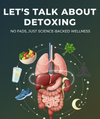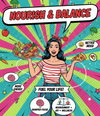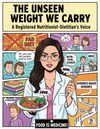H
a
n
n
a
h














How to Schedule a Consultation
Step 1: Click the “Book a Consultation Now” button.
Step 2: Select the type of consultation you need.
Step 3: Click “Pick a Schedule” and choose your date & time.
Step 4: Enter your name, email, and contact number.
Step 5: You’ll receive a confirmation email with your booking details.
Step 6: Send your payment via GCash or PayPal to secure your schedule.
Step 7: Once payment is confirmed, your consultation is fully booked! You’ll also receive a text, email, or phone call to confirm.
BMI Calculator
Tidbits by Hannah
Backed by research from trusted organizations like Harvard Health, WHO, and Mayo Clinic.
K
n
o
w
m
o
r
e
I’m Hannah, a licensed nutritionist-dietitian with over... see more
You’d be surprised how much a nutritionist or dietitian can change the way you see food and health. Most of us try to eat “healthy,” but the truth is, what works for someone else might not work for you. Your body, schedule, stress levels, and even sleep all play a huge role in how you process food and energy.
A nutritionist helps you figure out what your body actually needs, not just what’s trending online. They can spot nutrient gaps, fix energy dips, and build a plan that fits your real lifestyle (not a strict diet you’ll hate after a week).
If you’ve ever felt like you’re “doing everything right” but still not getting the results you want — whether it’s energy, focus, skin, or weight — that’s usually where professional guidance makes the difference.
Think of it this way: you go to a mechanic when your car needs tuning, right? Your body deserves the same care. It’s not just about eating less or working out more, it’s about eating smarter and understanding what truly fuels you.
If you’re someone who values your health and wants to actually see and feel results, this is 100% worth it. Sometimes all it takes is one consultation to get the clarity and plan your body’s been asking for.
D
e
b
u
n
k
i
n
g
N
u
t
r
i
t
i
o
n
a
l
M
y
t
h
s
Does It Work?
I remember chatting with a client who told me, “Hannah, I love the idea of simplifying my day. I just want to eat once, be done with it, and move on.” That’s when we started exploring the OMAD approach.
OMAD stands for One Meal a Day, and yes—it’s exactly what it sounds like. You fast for most of the day and eat just one main meal, usually within a 1-hour window. For some, it feels like a reset. For others, it’s a challenge.
Let’s walk through what I often share when someone’s curious about trying OMAD:
🌿 The Pros: Why People Try It
1. Simplicity.
One meal means one plan, one prep, one cleanup. For busy people or those who feel overwhelmed by food decisions, this can feel like freedom.
2. Weight Loss.
Eating less frequently can naturally reduce calorie intake. Over time, this might lead to weight loss—especially if the one meal is balanced and satisfying.
3. Improved Insulin Sensitivity.
With longer fasting windows, your body may become more sensitive to insulin. This can help with blood sugar balance and even energy stability.
4. Cellular “Spring Cleaning.”
Fasting triggers autophagy—your body’s way of cleaning out damaged cells and recycling them. Think of it like your cells doing a little home makeover.
🍂 The Cons: What to Watch Out For
1. Nutrient Gaps.
It’s not easy to meet your body’s full nutritional needs with just one meal. You need to be extra intentional—think fiber, protein, healthy fats, vitamins, and minerals.
2. Hunger & Cravings.
Let’s be honest—going all day without food can lead to strong cravings. Some people end up bingeing or feeling totally drained by dinner time.
3. It Can Feel Lonely.
Food is social. It’s connection. Skipping breakfast and lunch with friends or family can feel isolating for some, and it might not be sustainable long term.
4. Hormone Fluctuations.
Some people experience changes in appetite hormones like leptin (helps you feel full) and ghrelin (stimulates hunger). The balance can shift, especially for women, leading to mood swings or low energy.
So, is OMAD for you?
It depends. It can offer structure, simplicity, and even health benefits—but it also requires careful planning, body awareness, and a gentle approach.
Remember, nutrition isn't about extremes—it’s about what nourishes you, fits your lifestyle, and supports your well-being in the long run.
Let me know if you’re thinking about trying it—I’d love to explore how to make it safe and sustainable together.
More Than Just Skipping Breakfast?
One of the most common questions I get is, “Hannah, what do you think about intermittent fasting?”
And I totally get the curiosity—IF is everywhere lately, from podcasts to dinner conversations. So let’s break it down together.
Intermittent Fasting (or IF) isn’t about what you eat—it’s about when. It involves setting eating windows and fasting periods, and there are several popular styles:
⏰ 16:8 (16 hours fasting, 8 hours eating),
📆 5:2 (five regular eating days, two reduced-calorie days),
🔁 or even alternate day fasting.
It sounds simple, right? But like all nutrition tools, it has its ups and downs.
🌿 The Pros: Why It Works for Some
1. Flexibility
What I love about IF is that it’s not one-size-fits-all. You can choose the approach that best fits your routine, energy, and lifestyle.
2. Weight Loss
By shortening your eating window, you often eat fewer calories—leading to gradual weight loss for some people, especially when meals are balanced and nourishing.
3. Better Insulin Sensitivity
IF may help your body become more efficient at using insulin, potentially lowering blood sugar levels and reducing inflammation over time.
4. A Boost in Growth Hormone (HGH)
Some research suggests that fasting can increase human growth hormone, which plays a role in fat metabolism and muscle repair. Great news for those focused on strength and body composition!
🍂 The Cons: What to Keep in Mind
1. Hunger & Cravings
Let’s be real—limiting when you eat can lead to strong hunger pangs, especially at the start. It can make you feel irritable or tired if your meals aren’t balanced.
2. Not for Everyone
IF isn’t a safe fit for all. If you have a history of disordered eating, low blood pressure, diabetes, or take certain medications, fasting can actually do more harm than good. Always check with a healthcare provider first.
3. Social Hiccups
Fasting windows can make shared meals tricky. Skipping brunch with friends or pushing dinner late can feel isolating or disruptive to your routine.
4. Hormonal Effects (Especially for Women)
Some women notice changes in their menstrual cycles, energy levels, or even fertility when doing IF. That’s because our hormones are sensitive to extended fasting—especially if we're already under a lot of stress or eating too little.
My Take?
Intermittent fasting can be a powerful tool, but it’s not a magic fix. It works best when paired with whole, balanced meals and a mindset of listening to your body, not punishing it.
If you're thinking about trying it, let’s chat about the safest and most nourishing way to go about it. Your body is unique—your nutrition should be too.
Let’s get one thing straight: carbs are not your enemy.
They’re your brain’s favorite fuel and your muscles’ BFF.
So why are they getting so much hate?
-
🥖 Refined vs. Whole Carbs, hun.
The drama starts when people throw all carbs into one bucket.
Yes, the overly processed stuff — white bread, sugary drinks, and sad vending machine snacks — can cause trouble if you overdo it.
But whole carbs? Like brown rice, oats, saging, kamote?
They’re packed with fiber, nutrients, and slow-burning energy.
Big difference.
-
👤 One size doesn’t fit all.
Your ideal carb intake depends on you — your body, your goals, your lifestyle.
You’re not the same as your gym-rat friend or your keto-obsessed tita. And that’s okay.
-
⚖️ It’s called balance, babe.
A plate that’s actually good for you includes carbs — plus protein, fats, and veg.
It’s not about cutting rice for life.
It’s about knowing your body and making it work for you — not TikTok trends.
Moral of the story?
Carbs aren’t bad.
Misinformation is.
Eat smart. Eat well. And please — stop blaming the kanin. 🍚✨
Let’s be real.
We’ve all been there — casually dropping cash on cravings without thinking twice.
But when it comes to buying brown rice or a dozen eggs?
“Tight budget ako eh.”
But here’s the thing: for the same amount, think about it —
Kangkong, munggo, eggs, saging, oats — these are basics. Budget-friendly, filling, and actually good for you.
Back in the day, our lolos and lolas thrived on simple meals:
Rice + gulay + itlog.
No whey protein. No chia seeds. No fancy “detox tea.”
And yet? Malakas ang katawan. Bihira magkasakit.
Bakit?
Because they ate whole, local, unprocessed food.
It’s not about expensive = healthy.
It’s about intentional choices — learning to plan a little and letting go of the idea that healthy eating has to mean imported goods or overpriced meal plans.
Being sick is expensive.
Healthy eating isn’t boring — it’s smart, it’s budget-friendly,
and most of all,
it’s love — for your body and your future self.
Girl, it’s not when you eat — it’s how much and what you eat.
Calories don’t magically turn into fat after 6PM.
Your body doesn’t go: “Oops, it’s nighttime — store that rice as fat!”
What can happen?
Late-night eating = stress snacking, mindless munching, or bingeing after skipping meals all day. So it’s not the time — it’s the habits.
✨ Craving something at 9PM? Go for it.
Just make sure your overall intake still supports your goals.
Focus on the quality and balance of your diet — not the clock. It's a myth.
It’s not about when you eat.
It’s about how you eat.
The idea of “detoxing” your body with special diets isn’t new — it actually dates back to ancient wellness practices like fasting or herbal remedies used in various cultures. But here’s the thing: your body already has a built-in detox system.
Your liver, kidneys, digestive tract, skin, and even lungs work 24/7 to filter, neutralize, and eliminate waste. These organs are incredibly efficient and don’t need extreme “cleanses” or restrictive regimens to do their job.
Most modern detox diets — especially those promoted with teas, juices, or supplements — tend to cut out entire food groups or dramatically lower calorie intake. This can lead to nutrient deficiencies, fatigue, or even disrupt your metabolism. And scientifically? There’s little to no evidence that they offer added benefits compared to simply eating a balanced, whole-food diet.
The best way to support your body’s detox process? Stay hydrated, eat fiber-rich whole foods, move your body regularly, and get enough sleep. Simple, sustainable habits will always beat quick-fix fads.
Let’s clear this up — this myth has been debunked a long time ago. Not all fats are created equal, and fat itself isn’t the enemy.
Healthy fats — like the ones in avocados, nuts, olive oil, and fatty fish — actually support your body’s functions. They help regulate hormones, support brain health, keep your skin glowing, and even help you absorb important vitamins like A, D, E, and K. These are nutrients your body needs to thrive.
Weight gain doesn’t happen because you eat fat. It happens when you consistently consume more energy (calories) than your body uses — no matter where that energy comes from (fat, carbs, or protein). The excess is simply stored as body fat.




Y
o
u
c
a
n
'
t
p
o
u
r
f
r
o
m
a
n
e
m
p
t
y
c
u
p
.
☕

How can you care for others if you don’t take care of yourself first? Remember, your health is your biggest personal investment. You deserve to be healthy in mind and in body. Let us be part of your wellness journey.










